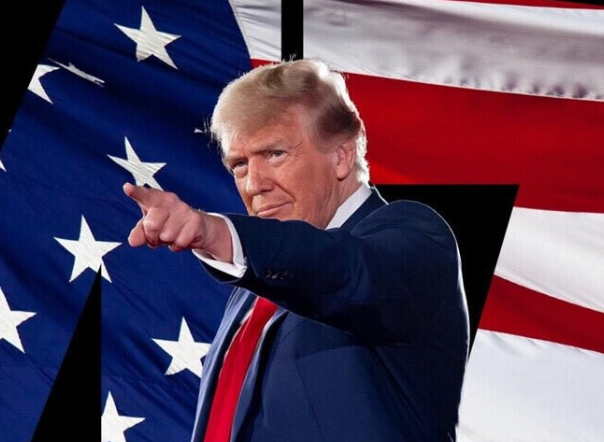President Trump takes center stage at the NATO meeting in The Hague, touting military success and economic revival. With peace in the Middle East, falling oil prices, and a major tax bill nearing passage, the administration claims a new era of prosperity and security. White House Economic Director Kevin Hassett outlines what it all means for growth, spending, and global trade.
President Trump NATO Speech Highlights “Operation Midnight Hammer,”
President Donald Trump addressed NATO allies in The Hague, declaring a major strategic victory in the Middle East and setting the tone for what his administration sees as a new chapter of American strength—both militarily and economically. Speaking about “Operation Midnight Hammer,” Trump emphasized that the U.S.-led airstrikes had pushed back Iran’s nuclear capabilities without triggering global oil shocks.
White House National Economic Director Kevin Hassett joined Maria Bartiromo to discuss the ripple effects of this bold military move and the upcoming tax and economic legislation poised to pass Congress.
Hassett called the moment “rare in American history,” pointing out that despite military escalation in the region, oil and gas prices are falling. He credited Trump’s leadership and strategic decision-making, emphasizing that with lower energy costs, Americans will have more disposable income, which in turn will boost economic growth in the second half of 2025.
Beyond the geopolitical arena, Hassett focused on the administration’s flagship legislative effort—a sweeping economic bill that includes major tax reforms, deregulation, and deficit reduction. According to Hassett, the bill is expected to pass the Senate soon and be presented in the House over the weekend, just in time for a July 4th signature by the President.
Hassett said that unlike previous Congresses, this time the administration is working in advance with both chambers to avoid long conference delays. “We’re sort of pre-negotiating, pre-conferencing,” Hassett explained. “Trying to get the Senate bill to be something the House is going to love so much they’ll vote for it right away.”
On the controversial SALT deduction cap—currently set at $10,000—Hassett acknowledged that while there’s still some intra-party debate, Treasury Secretary Scott Bessent is working with lawmakers to ensure a “happy landing place.” He assured that the final numbers will reflect a consensus that balances conservative fiscal priorities with moderate political realities.
Maria Bartiromo raised concerns about growing debt and long-term deficits. Hassett pointed out that the bill includes roughly two trillion dollars in spending cuts over 10 years and emphasized that stronger economic growth—targeting 3% GDP—could yield four trillion dollars more in federal revenue than current CBO projections.
He defended Trump’s tariffs, saying the CBO has already scored them to bring in an extra $2.8 trillion over the coming decade. “Anybody who claims to speak for fiscal responsibility and opposes this bill is pushing partisan propaganda,” he said. “This is the biggest deficit reduction package in American fiscal history.”
In response to concerns about additional wasteful spending, Hassett added that President Trump plans to send unnecessary expenditures—like research on fringe topics—back to Congress for rescission, using rules that bypass filibusters with a simple majority vote in the Senate.
As the conversation shifted toward trade, Bartiromo questioned the pace of new deals. While the UK deal has been signed, others remain in progress. Hassett said several deals are under negotiation and linked them to tax-related retaliatory measures. One of the more contentious parts of the bill, Section 899, which imposes reciprocal taxes on foreign companies taxing U.S. firms, may be removed if partner nations back off digital and other levies.
“There’s a good chance 899 comes out of the bill,” Hassett said, expressing optimism that U.S. trading partners would issue announcements to resolve the matter even before the final vote.
On specific priorities in the bill, Hassett highlighted provisions aimed at helping middle-class Americans: no tax on tips, no tax on overtime pay, no tax on Social Security income, and the introduction of a “Trump Account”—a savings vehicle seeded with $1,000 for every newborn to invest in U.S. equities. “This is how you beat socialism,” Hassett remarked, saying the account would fundamentally shift America’s political and financial equilibrium by promoting long-term investment from birth.
The conversation turned to monetary policy and the Federal Reserve, with Bartiromo asking about Chair Jay Powell’s reluctance to cut interest rates despite global rate reductions. Hassett criticized Powell, suggesting he had aligned too often with policies favored by progressive voices like Senator Elizabeth Warren.
“If the Fed respected the data, it would cut rates,” Hassett said, adding that Powell’s past decisions—including hikes before Trump’s inauguration—raise questions about his independence. He predicted that a rate cut would lead to a parallel downward shift in long-term rates, easing debt servicing pressure on the federal government.
As the interview wrapped up, Hassett projected optimism: strong consumer spending fueled by lower gas prices, a united push in Congress to pass a historic economic bill, and a White House confident in its ability to deliver peace and prosperity at once.
With Operation Midnight Hammer marking a geopolitical milestone and domestic economic policies aligning to sustain growth, the Trump administration is pushing a bold narrative of American resurgence—militarily, diplomatically, and economically.

